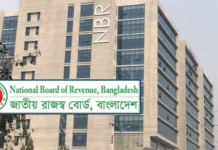Bhutanese boulder export to Bangladesh comes to a standstill again
 The boulder export business to Bangladesh from Gelegphu has come to a standstill, once again. But unlike earlier this year, this time, it is not due to any official order. The exporters and transporters are reluctant to continue with their business due to problems encountered in transporting the material. They are now requesting for an immediate intervention from relevant authorities.
The boulder export business to Bangladesh from Gelegphu has come to a standstill, once again. But unlike earlier this year, this time, it is not due to any official order. The exporters and transporters are reluctant to continue with their business due to problems encountered in transporting the material. They are now requesting for an immediate intervention from relevant authorities.
According to those involved in the boulder export business, the enforcement of carrying capacity per truck to 18 tons earlier this year came as a major setback. Following this was the news of Bhutanese truckers being harassed along the Indian highway, which went viral on social media, and restriction on movement of boulder-laden Bhutanese trucks through Tura town in Meghalaya.
They added, as they found an alternative route to deliver the consignment till the exit point, another problem cropped up. Local mobs and non-profit organizations along the route collected extortion fee in the name of vehicles being overloaded. Also, there have been reports of conflict among exporters.
“In Nakugoan area in the initial stage, they used to fetch Nu 2,800 per ton. During that time several people started acting smart. They started visiting Nakugaon and try to explore market outlet. In the process, they started negotiating the prices and they could not negotiate at a reasonable rate. They came drastically down. From that point, it came down to 25, 24, 23, 22 and now Nakugoan people are offering only Nu 1,800 per ton, which is way below what it used to be those days,” Ugyen Rapten, an exporter, said.
As the business slowed down, came in the practice called setting. It involved an individual or group who coordinated all the export processes for a certain fee.
“Now, irrespective of whether a person is an exporter, a transporter, a dredging contractor or a setter, everyone must come together and coordinate for the situation to improve. At the moment it is not a healthy competition. Everyone is after bringing each other down,” said Tobden, another exporter, said.
Exporters say, amidst the incidental expenses incurred, transporting boulders at the current rate of Nu 1,800 per ton would only be break-even.
“If the government want their exporters to do a fair business without cheating on anybody else, I feel the government should discuss with Bangladesh importers through some other means to raise the price back to the same old price. Otherwise, we have to carry a little bit extra, maybe up to 30 tons,” added Ugyen Rabten.
The Regional Manager of Bhutan Chamber of Commerce and Industry (BCCI) office in Gelegphu, Kezang said, so far, none of the exporters or transporters in Gelegphu approached the office seeking intervention.
“I feel it is the BCCI’s responsibility to address the issue. For that, we will soon submit a report to our head office about the ground realities here. We will inform and recommend the government on certain possibilities on our side to resolve the issue.”
He added a coordination meeting with all the relevant stakeholders from Meghalaya, Assam and the Bhutanese government should be organized if this problem is to be resolved at the earliest.
Meanwhile, more than four million tons of river bed materials are stocked along the Mao riverbed currently. The export business of river bed materials from Gelegphu to Bangladesh started in November last year.









